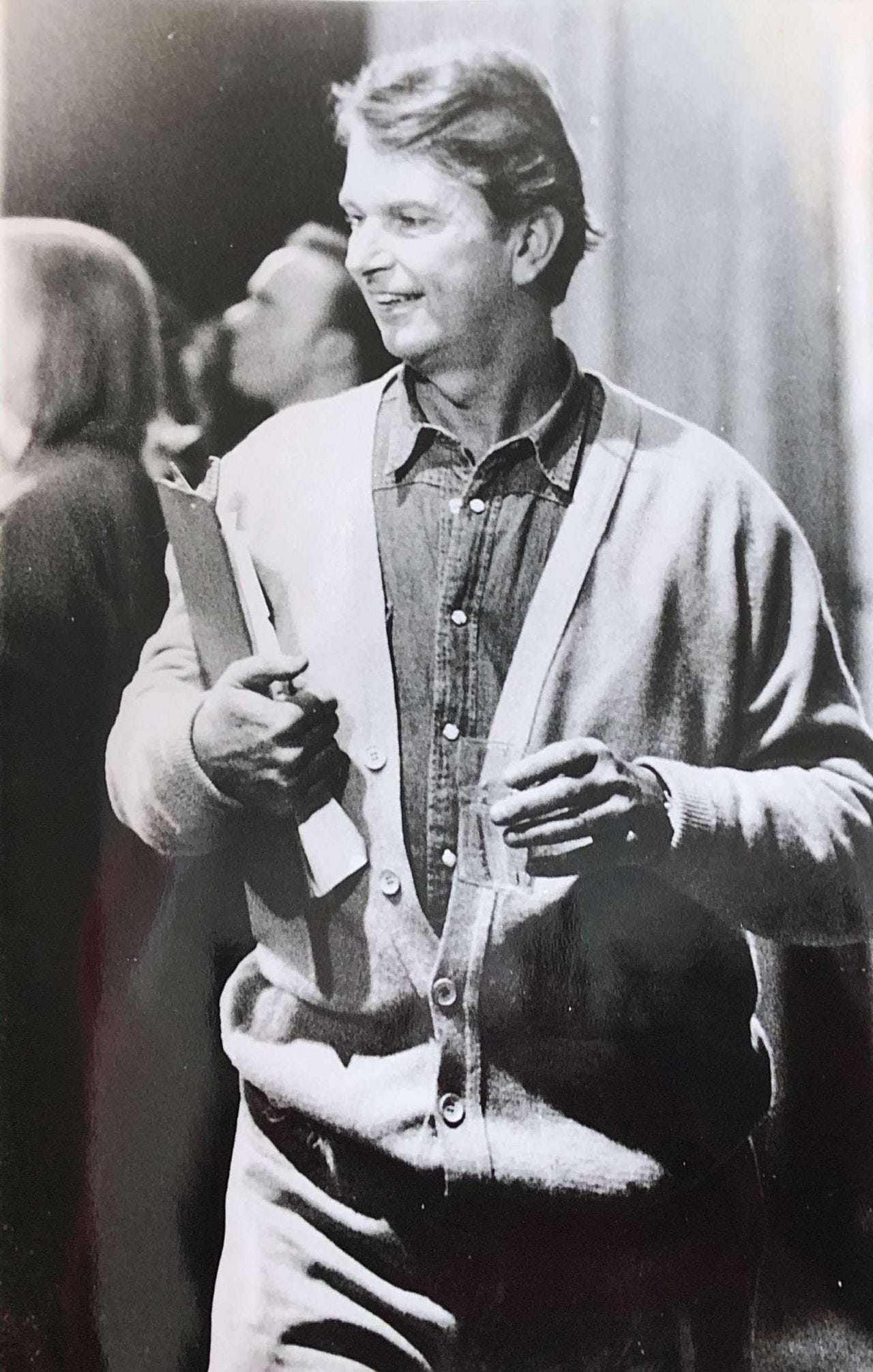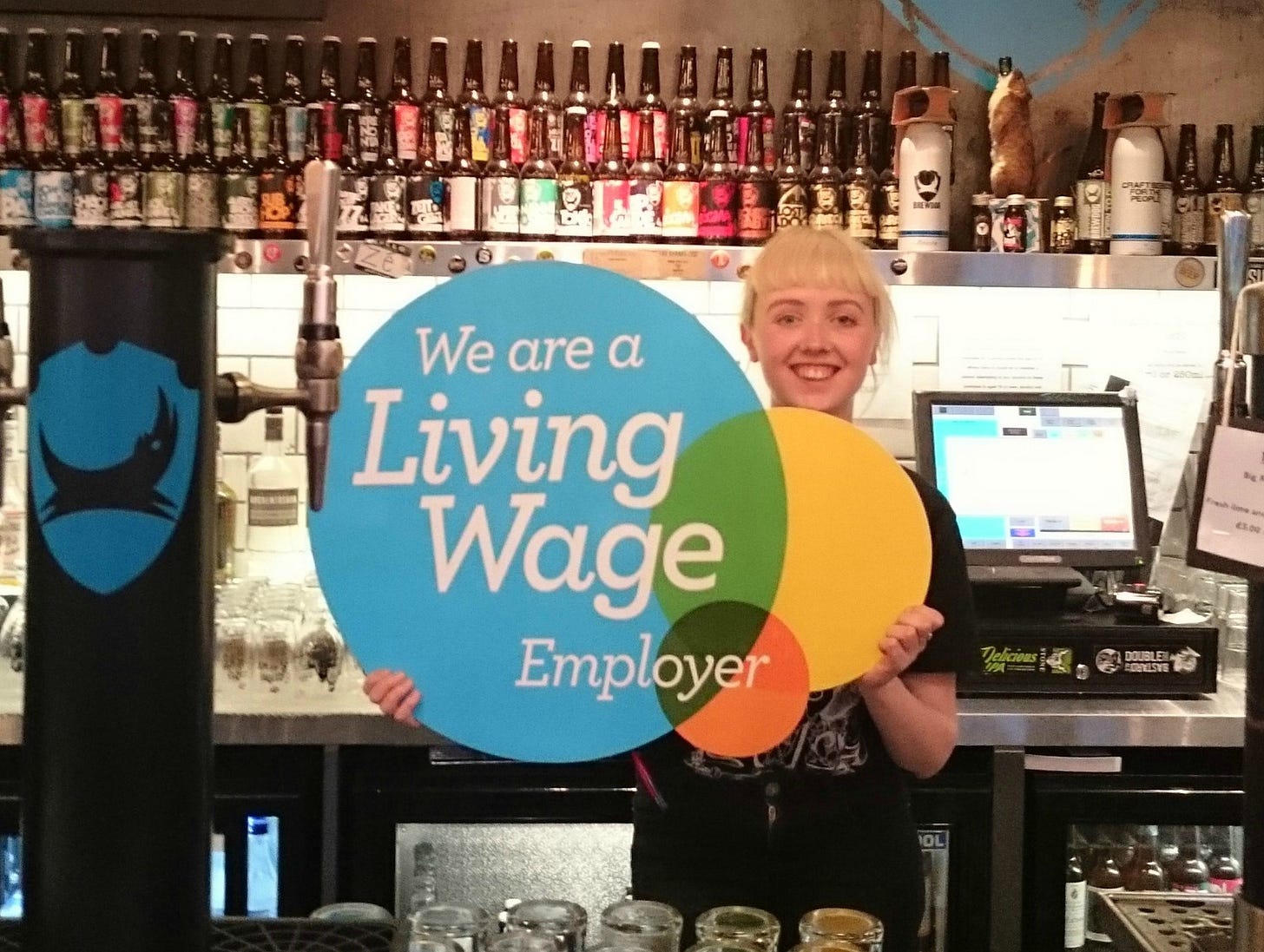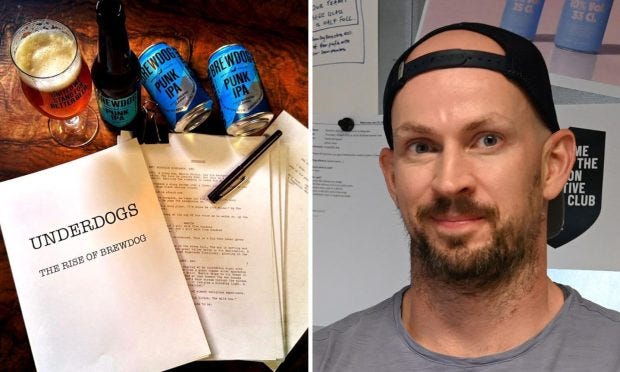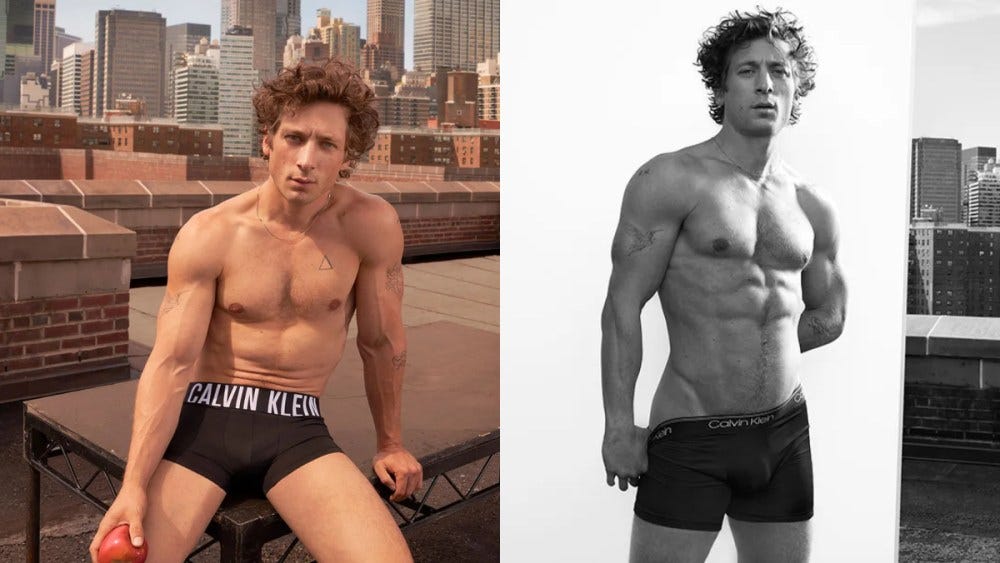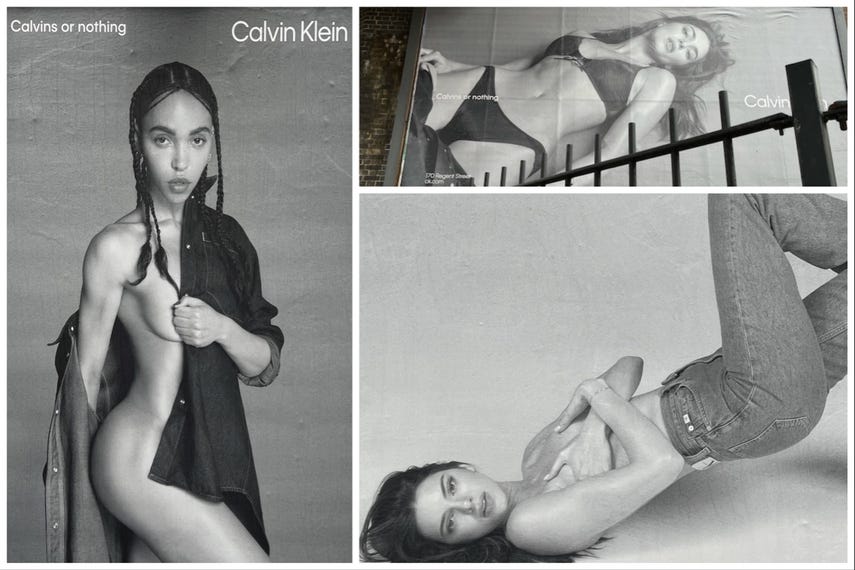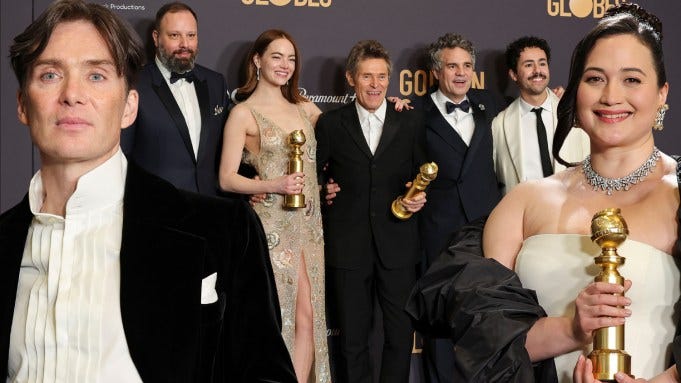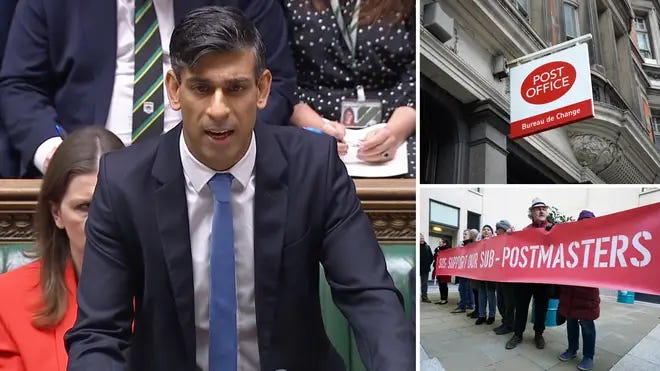Borkowski Media Trends: BrewDog, Calvin Klein & Golden Globe Awards
PLUS: Mark's Tribute to Philip Hedley and a bonus Post Office Trend
We start this week’s Trends with Mark’s tribute to Philip Hedley.
Philip Hedley’s passing marks the end of an era in the world of theatre. His innovative vision and dedication profoundly shaped modern theatre, leaving an indelible mark on countless artists and audiences. His legacy of nurturing talent and pushing creative boundaries will continue to inspire. Philip will be dearly missed, but his influence and contributions to the arts will live on. We extend our deepest condolences to his family, friends, and admirers in the theatre community.
Read the full post on Mark’s Linkedin: https://www.linkedin.com/feed/update/urn:li:activity:7149073402308263937/
BrewDog’s wage wars meets film announcement
BrewDog’s shift from its £12 real living wage commitment to the government’s £11.44 national minimum wage sparked viral backlash for contradicting its ‘punk’ ethos - a cornerstone of the craft beer giant’s identity, once heralded for its rebellious and progressive spirit. But when facing a £24 million operating loss, co-founder and CEO James Watt decided to reevaluate these ethical commitments amidst a challenging cost-of-living crisis.
This isn’t Watt’s first encounter with controversy. Past issues, including inappropriate behaviour towards employees and creating a “culture of fear”, led to BrewDog losing its B Corp certification. Watt’s previous social media posts have fueled the fire, flaunting a lavish lifestyle with reality show girlfriend Georgia Toffolo, which have been poorly received for obvious reasons.
The abandonment of the real living wage, previously a cornerstone of Brewdog’s public identity, is seen by former staff and campaign groups as a betrayal of principles. Punks with Purpose, a campaign group formed amid employee mistreatment allegations in 2021, notes that Brewdog’s crew, touted as the company’s most important resource, are facing a real-term pay cut. The wage reduction decision is a PR disaster, starkly undermining the company’s commitment to its workforce and putting its brand reputation at risk.
And to exacerbate the situation, James Watt is now steering towards the silver screen with “Underdogs: The Rise of BrewDog,” a movie chronicling their journey from a small brewery to a global empire featuring an opening scene set in the Scottish Highlands and allusions to their punk ethos. Let’s just say this isn’t the last time we’ll cover BrewDog in 2024.
Prime Time for Calvin Klein
Calvin Klein has entered 2024 with two PR hits, one intentionally crafted to “break the internet,” and another, presumably accidental. On January 4th, The Bear actor Jeremy Allen White strode topless (and then trouser-less) onto our phone screens. Clad only in Calvin Klien’s iconic white underwear, White performs some athletic feats on a New York City rooftop, sending social media into meltdown. True virality is increasingly rare, but with reports that the campaign generated $12.7 million in media impact value, clearly, sex still sells.
But, like the original campaign featuring an underage Brooke Shields, overt sexual imagery remains controversial, especially when the lens turns to the female body. Less than a week after White’s muscled antics were universally applauded, the Advertising Standards Authority banned an older ad featuring artist FKA Twigs.
The decision was made after three complaints, with the ASA stating that the image was “likely to cause serious offence” for objectification of women. Criticism followed, including from Twigs herself, who pointed out that policing the body of a woman of colour presents a double standard compared to the lack of action against ads featuring white women, like Kendall Jenner, or men, like White.
Calvin Klein has wisely stood by its approach, saying, “The ads contained a progressive and enlightened message.” Whether an advertisement featuring a naked woman can be described as “enlightened” may be up for debate, but the fact it’s been a good few weeks for the underwear flogging business is not.
And the award for Best Meme goes to …
The Golden Globes kicked the 2024 awards year with a bang, prompting a rich source of discussion following Hollywood’s prolonged strike season. Oppenheimer stood out as the notable winner with five awards, including the Best Drama Film, while Barbie received the inaugural Box Office Achievement Award.
Yet reading between the awards, the standout hits were the viral memes providing commentary and humour that even host Jo Koy couldn’t quite match. The comedian revealed as a last-minute host (by himself following a few duds), struggled to move the audience with jokes falling flat, like his Taylor Swift bit - commentary on appearances where she’s spotted at the NFL and asking for “fewer camera shots of Taylor” compared to games themselves. Ouch. Instead of taking his misses gracefully, he attributed the lacklustre material to his writers and limited preparation time, quickly turning the comedian into the joke.
Traditionally, televised awards shows capture genuine and unscripted moments, and the Golden Globes were no exception. Timothée Chalamet, nominated for Best Performance by an Actor in a Motion Picture, Musical or Comedy for his starring role in Wonka, was spotted sharing a kiss with Kylie Jenner, spawning memes and headlines confirming their rumoured relationship.
However, such unexpected moments also pose challenges to the stars, as Selena Gomez found herself unintentionally entangled in drama during a caught-on-camera conversation with Taylor Swift and Keleigh Sperry, sparking speculation of ‘gossiping’ about Chalamet & Jenner.
With a mere facial expression, celebrities can become instant memes, ensuring their enduring presence in social media discussions long after the awards show has mostly been forgotten.
Awards shows have declined for many years but have found relevance as a meme generator, where the viral moments become more culturally significant than the awards themselves. It’s an intriguing balancing act for the organisers - they can’t overtly lean into this formula; these moments must be organic to make them work. But cultivating an atmosphere that creates similar moments is certainly possible with careful planning... maybe this strategy is already in action.
Bonus: Mark Borkowski on the Post Office
In the era of cancel culture, where reputations can crumble at the speed of a tweet, accountability seems swift and relentless. A single misstep, a whispered rumour, and one can be brought down in seconds. No one is too big to fail, no mistake too small to go unnoticed.
The Post Office scandal paints a starkly different picture. For nearly two decades, a faulty IT system wreaked havoc on the lives of hundreds of postmasters. Accused of financial discrepancies based on its unreliable data, real people faced wrongful prosecutions, bankruptcies, and even suicide. Despite relentless campaigns by Private Eye, the BBC, Nick Wallis, the Daily Mail and a cross-party parliamentary campaign, true progress remained agonisingly slow. It took an unlikely hero to finally catch the public's eye: an ITV docudrama, Mr. Bates vs the Post Office.
Why, after years of real human suffering, did it take fiction to spark action? Was a TV screen really more compelling than real, raw stories of devastation?
The answer, unfortunately, lies in the complex dance between power, inertia, and political prudence. Institutions like the Post Office have an inherent advantage: resources, legal might, and a tendency to close ranks under scrutiny. Victims’ voices are easily drowned out in their uphill battle. Add to that the reluctance of governments to account for errors, and the path to justice becomes one of glacial pace.
The Post Office scandal is not an anomaly. One thinks of Nikki and Paul Turner, the Cambridge couple who uncovered the £1 billion fraud at HBOS in Reading, they are among hundreds of business owners whose livelihoods were destroyed by corrupt bankers at the Reading branch of HBOS bank. Further issues are still unresolved Then there is Kashif Shabir's allegations of fraud at the Lloyds Recoveries unit in Bristol. Unfortunately, rather than seeking to address Mr. Shabir’s complaint, Lloyds Bank has allocated resources to devising a strategy to deflect him.
The Post Office saga stands as a chilling counterpoint to our narrative of ‘instantaneous online accountability’. It exposes a world where human lives can be truly crushed beneath the weight of institutional indifference, while the public eye is distracted by fleeting online storms over semantics. While cancel culture is feared for its swift and unforgiving nature, the saga prompts me to wonder whether we should be just as concerned for the menace lurking at the opposite extreme – the chilling impunity enjoyed by so many of our powerful institutions, in the face of truly heinous errors and actions.”



